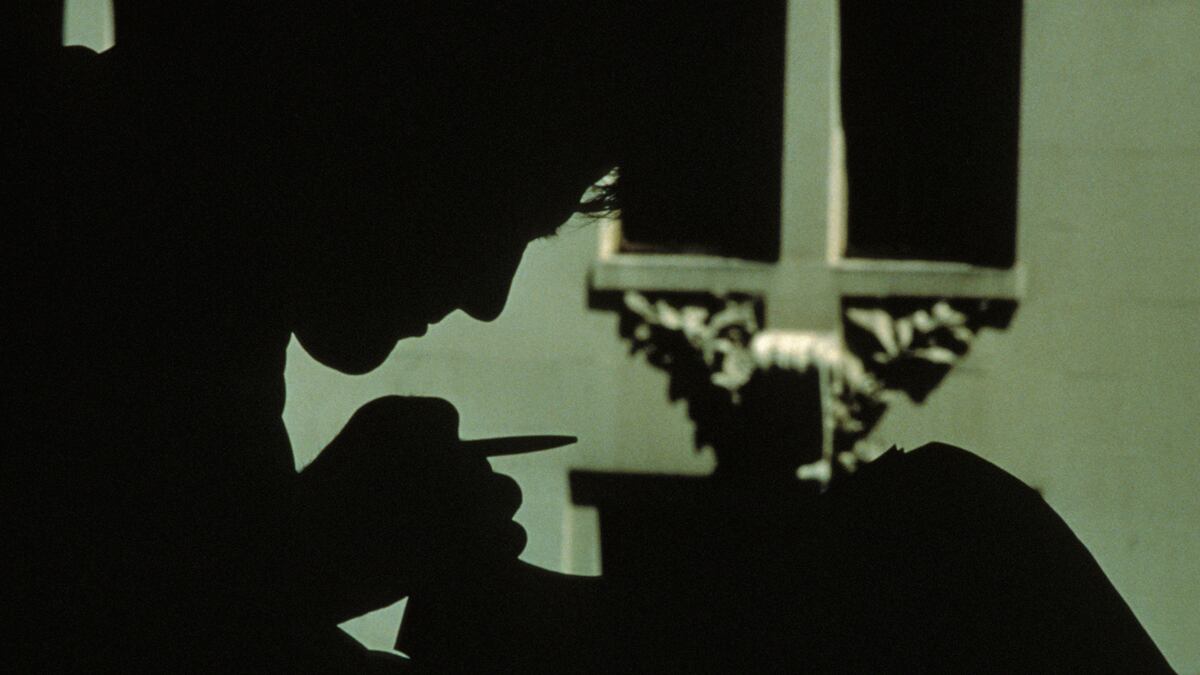If Ken Bruen did not exist, only the devil could have invented Jack Taylor. Taylor is the hero—and that’s casting a pretty wide net in defining the term—of nine novels as nasty and profane as anything written in the English language coming under the heading of crime fiction. (His most recent novel, Headstone, was published last fall.)
Though he’s built up a sizeable following stateside, Bruen is still largely a phenomenon waiting to happen here. The 2010 film London Boulevard, made from a Bruen novel (not in the Jack Taylor series) starring Colin Farrell and Keira Knightley and directed by William Monahan, screenwriter for The Departed, was considered “too foreign” for American audiences and has scarcely been seen here. The BBC miniseries of the first Jack Taylor novel, The Guards, was critically acclaimed in the U.K. but has still not made it on to American TV.
Perhaps Americans are used to their private detectives being of sounder moral character. The Galway-based Taylor is a former policeman fueled by Jameson’s, the occasional line of coke, and, as he puts it in The Guards, “a mix of rage and sadness, and it’s a dangerous cocktail.” Top o' the mornin’ to ya.
Bruen has no patience with Hollywood’s brand of Irish sentimentality. “The old folk say, ‘When you hear a bell ring, it’s an angel getting her wings.’ Mind you, the old folk believe all kinds of weird shite.” Much of that shite comes from Jack’s ma. In a refreshing reversal stereotype of Mother Machree married to a drunken lout, Taylor reveres the memory of his da and can’t stomach his mother. Every gesture she makes is fraught with deceit and self pity: “She sighed. It was what she did best. She could have sighed for Ireland.” Or, as he expressed it another time, “My mother is a walking bitch.”
Not that Jack is without reverence for old, or at least Old Ireland. He’s been to the States, lived in London, and has even seen a bit of Dublin, but he goes back to Galway, which is just big enough for his ego and small enough to be a last bastion of things worth saving. He’s not above slipping 10 euros into the cap of a street busker playing “Carrick Fergus,” and is fond of the elderly woman who runs Bailey’s Hotel, where he lives, “Perhaps it’s that we are both of that endangered species, ‘Old Galway,’ and our time is truly limited.”

New Galway is a town unknown to Bing Crosby, populated by Eastern European drug dealers, neo Nazis, Satan worshippers, and even psychotics who slaughter Galway’s famed swans. Compared to Bruen’s Galway, the Dublin of his fellow crime writer, Benjamin Black, is the Innisfree of John Ford’s The Quiet Man.
Amazingly, considering the subject matter, the Jack Taylor novels have a touch of snob appeal. Jack has to be the readingest private eye in all of fiction; he seems to have read more books than every detective from Sherlock Holmes to Philip Marlowe combined. So has Bruen, judging from the constant allusions to Yeats, Ruskin, and Charles Bukowski, not to mention the titles of some of Bruen’s early books such as Rilke on Black, The McDead, and Dispatching Baudelaire. (He is, perhaps, the first crime writer since Christopher Marlowe to have a degree in metaphysics.) Taylor is as hooked on reading as he is on booze or blow. More than likely, reading is Bruen’s posthumous revenge on his parents, who, he once told me, “forbade books in our home, except for the Bible. They thought I needed help because I wanted to be a writer.”
What kind of writer? In an interview with his friend and collaborator Reed Farrel Coleman (Tower), Bruen confessed, “I’d kill to be a poet.” One wonders who the victim was and what bargain Bruen cut with the devil because he wound up a novelist and a poet. In The Magdalen Murders, Jack reveals that “I felt the guilt and recrimination still. The line of dead who accused me at every turn of sleep, they come in silent dread …”
In The Guards, “I sipped the espresso. Bitter as an unheard prayer.”
In a pinch in The Devil, Jack pulls a knife “as sharp as a nun on her second sherry.” Above all, as he phrases it in The Devil, Bruen eschews the kind of “novelistic flourish that literary writers used when they were aiming for the Booker.” Word to you, John Banville?
No matter where Jack Taylor’s cases take him, the path invariably leads back to some unholy alliance between the twin devils of church and state. Bruen seems to derive a hearty satisfaction from sticking it to the clergy, even to the point of the ultimate sacrilege—a cameo as a Catholic priest in the 2011 Jason Statham vehicle, Blitz (made from another non-Taylor Bruen novel).
Through the desertion by his wife, the loss of a couple of fingers and a handful of teeth, and taking more beatings then a British heavyweight, Jack endures. Perhaps Bruen’s bargain wasn’t with the devil but the other side. As Jack says, “There’s God and then there’s the Irish version.”






